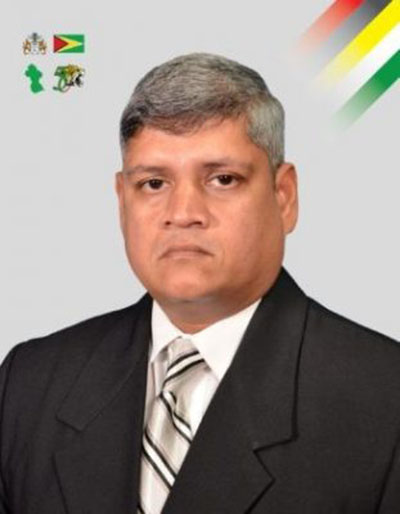Former Minister within the Ministry of Finance Jaipaul Sharma has resigned from active politics.
In a post on his Facebook page, Sharma who entered public life in 2011 expressed gratitude at being able to serve as a parliamentarian and Minister of Government.
He served as a member of the 10th and 11th parliament representing A Partnership for National Unity (APNU) and the APNU+AFC coalition respectively. He however was until January 2020 a member of the Justice For All Party (JFAP) founded by his father CN Sharma. In January he resigned from the JFAP and joined the People’s National Congress Reform (PNCR).
During the 2014 budget debates, Sharma had resigned from the assembly after then Education Minister Priya Manickchand heckled him about the statutory rape charges against his father. He returned to “active politics” ahead of the 2015 General and Regional Elections and was appointed a Minister when the David Granger-led coalition entered office. Sharma was not included in APNU+AFC’s list of MPs yesterday.
“Throughout these seven years, you [the public] have been the source of kindness, resilience, and hope from which I’ve pulled strength… I have loved my political life, all of it. I have had experiences, adventures and friendships enough to satisfy me for a lifetime and I am so thankful to you our supporters of APNU+AFC,” the politician said in his resignation statement adding that he has tried to serve citizens diligently at all times.
“I was not always successful in getting the necessary assistance to resolve the complains of everyone but I hope my responsiveness has weighed favourably against my failure in getting you a favourable outcome to your concerns,” he noting before calling on citizens to be vigilant and watchful of the government.
Persons are to ensure that government remain committed to full filling their 101 promises and that they remain democratic and transparent.
“This must be the work of all citizens. Not just when there’s an election, not just when our own narrow interest is at stake, but over the full span of a lifetime of the government. Remember the single most powerful word in our constitutional democracy is the word ‘We.’ We the People. We shall overcome,” Sharma concluded.






